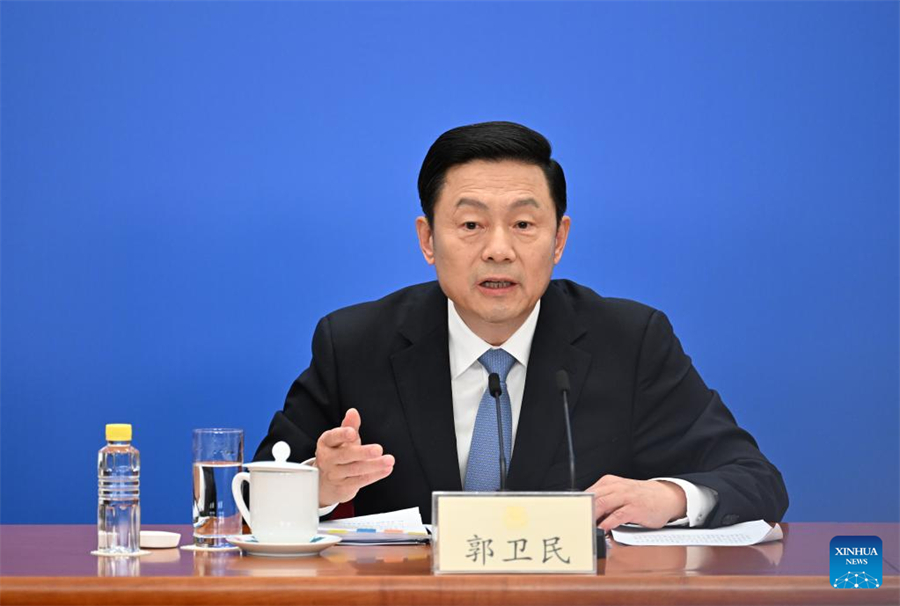China's top political advisory body to hold annual session from March 4 to 11

Guo Weimin, spokesperson for the first session of the 14th National Committee of the Chinese People's Political Consultative Conference (CPPCC), attends a press conference at the Great Hall of the People in Beijing, capital of China, March 3, 2023. The CPPCC National Committee held a press conference on Friday, one day ahead of the top political advisory body's annual session. [Xinhua/Jin Liangkuai]
BEIJING -- The National Committee of the Chinese People's Political Consultative Conference (CPPCC), the country's top political advisory body, will start its annual session at 3 p.m. Saturday in Beijing, a spokesperson said Friday.
The first session of the 14th CPPCC National Committee is scheduled to conclude on the afternoon of March 11, Guo Weimin, spokesperson for the session, told a press conference.
During the session, political advisors will hear and deliberate a report about the work of the Standing Committee of the CPPCC National Committee and a report on the work of proposals from political advisors, according to Guo.
The political advisors will be present at the first session of the 14th National People's Congress as non-voting participants, and will hear and discuss reports including a government work report, Guo added.
An amendment to the CPPCC charter and a political resolution on the first session of the 14th CPPCC National Committee will be reviewed and adopted during the session, Guo said.
The election of a new leadership for the top advisory body is also on the agenda, Guo noted.
The members of the 14th CPPCC National Committee fall into 34 groups and are from all of China's 56 ethnic groups, Guo said, adding that 60.8 percent of them are not members of the Communist Party of China (CPC).
They are broadly representative with improved structure of composition, and outstanding individuals from all walks of life have been included, said the spokesperson.
The CPPCC is an important organ for multiparty cooperation and political consultation led by the CPC.
























